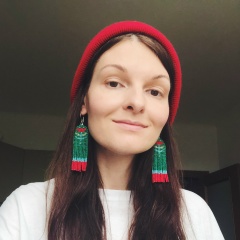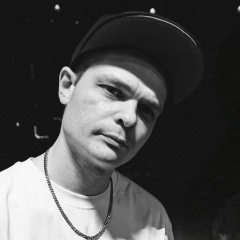Я вспомнил случай с беженцами-берберами. Мой отец поселил их отдельно,
в небольшом селенье на севере от города. Он не хотел, чтобы они смешались с
нами. Он был к ним добр: давал чай, сахар и полотно на одежду. Он не
требовал от них никакой работы в уплату за свою щедрость. Кому еще жилось
беззаботнее, и каждый из них мог сказать:
— Какое мне дело до чужих и далеких? У меня есть сахар и чай, мой осел
сыт, жена со мной рядом, дети растут и умнеют. У меня все хорошо и большего
мне не нужно...
Но кому они показались бы счастливыми? Мы изредка навещали их, когда
отец учил меня...
— Смотри, — говорил он, — они сделались домашним скотом и потихоньку
гниют... не плотью, а сердцем...
Ибо мир для них обессмыслился.
Даже если ты не поставил на кон состояния, игра в кости для тебя мечта
об отарах, земле, золотых слитках и бриллиантах. У тебя их нет. Но они есть
у других. Однако приходит день, и ты перестаешь мечтать при помощи игры в
кости. И бросаешь игру.
А наши подопечные бросили разговаривать, им стало не о чем говорить.
Истерлись похожие друг на друга семейные истории. О своих шатрах, похожих
как две капли воды, они все рассказали друг другу. Они ничего не боялись, ни
на что не надеялись, ничего не придумывали. Слова служили им для самых
обыденных дел. "Одолжи мне таганок", — просил один. "Где мой сын?" —
спрашивал другой. Чего хотеть, когда лежишь у кормушки? Ради чего стараться?
Ради хлеба? Им кормят. Ради свободы? Но в пределах своей крошечной вселенной
они свободны до беспредельности. Они захлебывались от своей безграничной
свободы, и у богатых от нее пучило животы. Ради того, чтобы восторжествовать
над врагами? Но у них не было врагов.
Отец говорил:
— Ты можешь прийти к ним один, пройти по всему селенью, хлеща их бичом
по лицу. Они оскалятся, как свора собак, попятятся, огрызаясь и желая
укусить, но ни один не пожертвует собой. Ты останешься безнаказанным,
скрестишь руки на груди и почувствуешь оскомину от презрения...
Он говорил:
— На вид они люди. Но под оболочкой не осталось ничего человеческого.
Они могут убить тебя по-подлому, в спину, — воры тоже бывают опасны, —
взгляда в глаза они не выдержат.
А берберы тем временем занемогли враждой. Не той, что делит людей на
два лагеря, — бестолковой враждой каждого ко всем остальным: ведь каждый,
кто съел свой припас, мог своровать что-то у других. Они следили друг за
другом, как собаки, что кружат вокруг лакомого куска. Равенство было для них
справедливостью, и во имя равенства они начали убивать. Убивать того, кто
хоть чем-то был отличен от большинства.
— Толпа, — говорил отец, — ненавидит человека, потому что всегда
бестолкова и расползается во все стороны разом, уничтожая любое творческое
усилие. Плохо, если человек подавил толпу. Но это еще не безысходность
рабства. Безысходное рабство там, где толпе дано право уничтожать человека.
И вот во имя сомнительной справедливости кинжалы вспарывали животы,
начиняя ночь трупами. А на заре эти трупы сваливали, словно мусор, на
пустыре, откуда забирали их наши могильщики. Работы у них не убавлялось. И
мне вспомнились отцовские слова: "Заставь их строить башню, и они
почувствуют себя братьями. Но если хочешь увидеть их ненависть, брось им
маковое зерно".
Мы заметили, что берберы, пользуясь словами все реже и реже, отвыкают
от них. Когда мы с отцом шли мимо, берберы сидели с пустыми тупыми лицами,
смотрели и не узнавали. Иногда мы слышали глухое ворчанье и догадывались,
что приближается час кормежки. Берберы бытовали, позабыв, что значит
горевать и хотеть, любить и ненавидеть. Они не мылись, не уничтожали
паразитов. Пошли болезни, язвы. От поселения стал исходить смрад.
Экзюпери. Цитадель.
в небольшом селенье на севере от города. Он не хотел, чтобы они смешались с
нами. Он был к ним добр: давал чай, сахар и полотно на одежду. Он не
требовал от них никакой работы в уплату за свою щедрость. Кому еще жилось
беззаботнее, и каждый из них мог сказать:
— Какое мне дело до чужих и далеких? У меня есть сахар и чай, мой осел
сыт, жена со мной рядом, дети растут и умнеют. У меня все хорошо и большего
мне не нужно...
Но кому они показались бы счастливыми? Мы изредка навещали их, когда
отец учил меня...
— Смотри, — говорил он, — они сделались домашним скотом и потихоньку
гниют... не плотью, а сердцем...
Ибо мир для них обессмыслился.
Даже если ты не поставил на кон состояния, игра в кости для тебя мечта
об отарах, земле, золотых слитках и бриллиантах. У тебя их нет. Но они есть
у других. Однако приходит день, и ты перестаешь мечтать при помощи игры в
кости. И бросаешь игру.
А наши подопечные бросили разговаривать, им стало не о чем говорить.
Истерлись похожие друг на друга семейные истории. О своих шатрах, похожих
как две капли воды, они все рассказали друг другу. Они ничего не боялись, ни
на что не надеялись, ничего не придумывали. Слова служили им для самых
обыденных дел. "Одолжи мне таганок", — просил один. "Где мой сын?" —
спрашивал другой. Чего хотеть, когда лежишь у кормушки? Ради чего стараться?
Ради хлеба? Им кормят. Ради свободы? Но в пределах своей крошечной вселенной
они свободны до беспредельности. Они захлебывались от своей безграничной
свободы, и у богатых от нее пучило животы. Ради того, чтобы восторжествовать
над врагами? Но у них не было врагов.
Отец говорил:
— Ты можешь прийти к ним один, пройти по всему селенью, хлеща их бичом
по лицу. Они оскалятся, как свора собак, попятятся, огрызаясь и желая
укусить, но ни один не пожертвует собой. Ты останешься безнаказанным,
скрестишь руки на груди и почувствуешь оскомину от презрения...
Он говорил:
— На вид они люди. Но под оболочкой не осталось ничего человеческого.
Они могут убить тебя по-подлому, в спину, — воры тоже бывают опасны, —
взгляда в глаза они не выдержат.
А берберы тем временем занемогли враждой. Не той, что делит людей на
два лагеря, — бестолковой враждой каждого ко всем остальным: ведь каждый,
кто съел свой припас, мог своровать что-то у других. Они следили друг за
другом, как собаки, что кружат вокруг лакомого куска. Равенство было для них
справедливостью, и во имя равенства они начали убивать. Убивать того, кто
хоть чем-то был отличен от большинства.
— Толпа, — говорил отец, — ненавидит человека, потому что всегда
бестолкова и расползается во все стороны разом, уничтожая любое творческое
усилие. Плохо, если человек подавил толпу. Но это еще не безысходность
рабства. Безысходное рабство там, где толпе дано право уничтожать человека.
И вот во имя сомнительной справедливости кинжалы вспарывали животы,
начиняя ночь трупами. А на заре эти трупы сваливали, словно мусор, на
пустыре, откуда забирали их наши могильщики. Работы у них не убавлялось. И
мне вспомнились отцовские слова: "Заставь их строить башню, и они
почувствуют себя братьями. Но если хочешь увидеть их ненависть, брось им
маковое зерно".
Мы заметили, что берберы, пользуясь словами все реже и реже, отвыкают
от них. Когда мы с отцом шли мимо, берберы сидели с пустыми тупыми лицами,
смотрели и не узнавали. Иногда мы слышали глухое ворчанье и догадывались,
что приближается час кормежки. Берберы бытовали, позабыв, что значит
горевать и хотеть, любить и ненавидеть. Они не мылись, не уничтожали
паразитов. Пошли болезни, язвы. От поселения стал исходить смрад.
Экзюпери. Цитадель.
I recalled the case of the Berber refugees. My father settled them separately
in a small village north of the city. He didn’t want them mixed with
us. He was kind to them: he gave tea, sugar and a cloth to clothes. He is not
demanded from them no work in payment for his generosity. Who else lived
carefree, and each of them could say:
- What do I care about strangers and distant? I have sugar and tea, my donkey
fed up, my wife is with me, the children are growing and getting smarter. I'm fine and bigger
I do not need ...
But to whom would they seem happy? We occasionally visited them when
father taught me ...
“Look,” he said, “they became livestock and slowly
rot ... not by the flesh, but by the heart ...
For the world was meaningless to them.
Even if you don’t bet the fortunes, dice is your dream
about flocks, land, gold bars and diamonds. You don’t have them. But they are
other's. However, the day comes and you stop dreaming by playing
bones. And you quit the game.
And our wards stopped talking, they had nothing to talk about.
Family stories that were similar to each other were worn out. About their tents similar
like two drops of water, they all told each other. They were not afraid of anything, nor
what they did not hope for, did not invent anything. Words served them for the most
mundane affairs. “Lend me a taganka,” one asked. "Where is my son?" -
asked another. What do you want when you lie at the trough? Why try?
For the sake of bread? They are fed. For the sake of freedom? But within its tiny universe
they are free to infinity. They choked with their boundless
freedom, and the rich got her stomach pounded. In order to triumph
over enemies? But they had no enemies.
Father said:
- You can come to them alone, go around the village, whipping them with a whip
in the face. They grin, like a pack of dogs, back away, snapping and wishing
bite, but not one will sacrifice himself. You will go unpunished
you cross your arms over your chest and feel a soreness from contempt ...
He said:
- They look like people. But there was nothing human left under the shell.
They can kill you in vain, in the back, - thieves are also dangerous, -
they can’t stand eye contact.
And in the meantime, the Berbers fell ill. Not the one that divides people into
two camps, - stupid enmity of each to everyone else: after all, everyone,
those who ate their supplies could steal from others. They followed each other
friend like dogs that circle around a tidbit. Equality was for them
justice, and in the name of equality, they began to kill. Kill the one who
at least something was different from most.
“The crowd,” said the father, “hates the man, because he always
stupid and sprawls in all directions at once, destroying any creative
an effort. It’s bad if a person crushed the crowd. But this is not hopelessness
slavery. Hopeless slavery where the crowd is given the right to destroy a person.
And in the name of dubious justice, daggers ripped open their bellies,
starting the night with corpses. And at the dawn of these corpses dumped like garbage on
wasteland, where our gravediggers took them from. Their work was not diminished. AND
I remembered my father’s words: “Make them build a tower, and they
feel like brothers. But if you want to see their hatred, throw them
poppy seeds. "
We noticed that Berbers, using words less and less, wean
from them. As my father and I walked past, the Berbers sat with blank, dull faces,
looked and did not recognize. Sometimes we heard a dull grunt and guessed
that the hour of feeding is approaching. Berbers existed, forgetting what it means
grieve and want, love and hate. They did not wash, did not destroy
parasites. Diseases, sores. The stench began to emanate from the settlement.
Exupery. Citadel.
in a small village north of the city. He didn’t want them mixed with
us. He was kind to them: he gave tea, sugar and a cloth to clothes. He is not
demanded from them no work in payment for his generosity. Who else lived
carefree, and each of them could say:
- What do I care about strangers and distant? I have sugar and tea, my donkey
fed up, my wife is with me, the children are growing and getting smarter. I'm fine and bigger
I do not need ...
But to whom would they seem happy? We occasionally visited them when
father taught me ...
“Look,” he said, “they became livestock and slowly
rot ... not by the flesh, but by the heart ...
For the world was meaningless to them.
Even if you don’t bet the fortunes, dice is your dream
about flocks, land, gold bars and diamonds. You don’t have them. But they are
other's. However, the day comes and you stop dreaming by playing
bones. And you quit the game.
And our wards stopped talking, they had nothing to talk about.
Family stories that were similar to each other were worn out. About their tents similar
like two drops of water, they all told each other. They were not afraid of anything, nor
what they did not hope for, did not invent anything. Words served them for the most
mundane affairs. “Lend me a taganka,” one asked. "Where is my son?" -
asked another. What do you want when you lie at the trough? Why try?
For the sake of bread? They are fed. For the sake of freedom? But within its tiny universe
they are free to infinity. They choked with their boundless
freedom, and the rich got her stomach pounded. In order to triumph
over enemies? But they had no enemies.
Father said:
- You can come to them alone, go around the village, whipping them with a whip
in the face. They grin, like a pack of dogs, back away, snapping and wishing
bite, but not one will sacrifice himself. You will go unpunished
you cross your arms over your chest and feel a soreness from contempt ...
He said:
- They look like people. But there was nothing human left under the shell.
They can kill you in vain, in the back, - thieves are also dangerous, -
they can’t stand eye contact.
And in the meantime, the Berbers fell ill. Not the one that divides people into
two camps, - stupid enmity of each to everyone else: after all, everyone,
those who ate their supplies could steal from others. They followed each other
friend like dogs that circle around a tidbit. Equality was for them
justice, and in the name of equality, they began to kill. Kill the one who
at least something was different from most.
“The crowd,” said the father, “hates the man, because he always
stupid and sprawls in all directions at once, destroying any creative
an effort. It’s bad if a person crushed the crowd. But this is not hopelessness
slavery. Hopeless slavery where the crowd is given the right to destroy a person.
And in the name of dubious justice, daggers ripped open their bellies,
starting the night with corpses. And at the dawn of these corpses dumped like garbage on
wasteland, where our gravediggers took them from. Their work was not diminished. AND
I remembered my father’s words: “Make them build a tower, and they
feel like brothers. But if you want to see their hatred, throw them
poppy seeds. "
We noticed that Berbers, using words less and less, wean
from them. As my father and I walked past, the Berbers sat with blank, dull faces,
looked and did not recognize. Sometimes we heard a dull grunt and guessed
that the hour of feeding is approaching. Berbers existed, forgetting what it means
grieve and want, love and hate. They did not wash, did not destroy
parasites. Diseases, sores. The stench began to emanate from the settlement.
Exupery. Citadel.
У записи 2 лайков,
0 репостов.
0 репостов.
Эту запись оставил(а) на своей стене Павел Тихомиров























